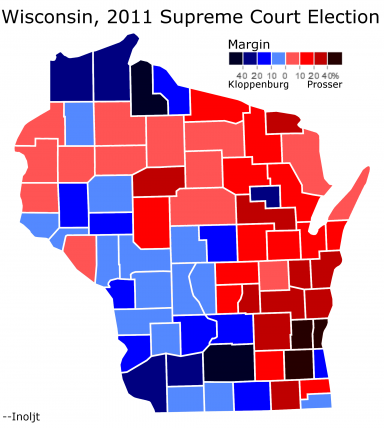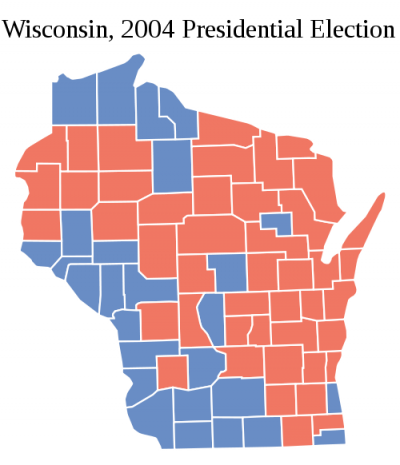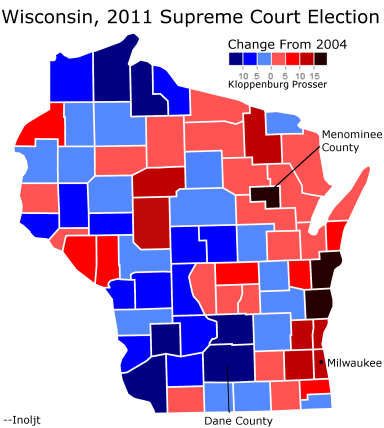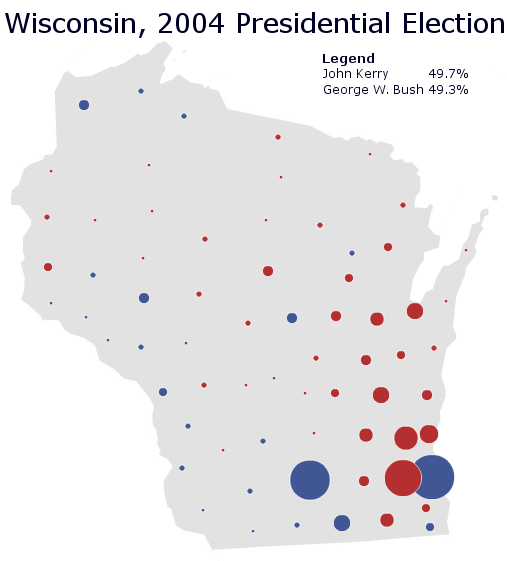Senate:
• FL-Sen: Dem Sen. Bill Nelson said he raised over $2 million in Q1 and would report somewhere between $4.5 and $5 million on hand. Republican Mike Haridopolos said he raised $2.6 million and would show $2.5 mil in the bank.
• HI-Sen: So that weird SMS poll we showed you yesterday which only pitted Ed Case vs. Mufi Hannemann in a Dem primary had another, more useful component. They also included favorables for a whole host of Hawaii politicians. Mazie Hirono was best (62% fave), while Linda Lingle was worst (44% unfave). Click the link for the rest. (And no, we still don’t know who SMS took this poll for. They’re just saying it was a private client.)
• MI-Sen: Sen. Debbie Stabenow (D) raised $1.2 million in Q1 and has $3 million on hand.
• MO-Sen: Sen. Claire McCaskill (D) raised over $1 million in Q1 and has about $1.8 million on hand.
• NM-Sen: Teabagging businessman Greg Sowards raised $150K in Q1… but it sounds like that’s all his own money. The writeup is unclear, though – it’s possible he raised $150K from outside sources and threw in an equal amount on his own.
• NV-Sen: Wealthy Dem attorney Byron Georgiou raised $1.1 million in Q1, with $500K of that coming from his own pockets.
Gubernatorial:
• ME-Gov: We previously mentioned a proposed constitutional amendment in Maine that would require gubernatorial candidates to receive 50% of the vote (a hurdle almost no one has reached in recent decades). That proposal just died in the state Senate, so it’s basically dead for this term.
• MT-Gov: Democratic state Sen. Larry Jent officially announced he is running for governor. He faces fellow state Sen. Dave Wanzenried in the primary. State AG Steve Bullock may also run.
House:
• AZ-06: Ex-Rep. Matt Salmon, who served in a similar seat in the 1990s, says he’s now thinking about running for Jeff Flake’s open seat. Salmon previously said he was considering a run for governor.
• CA-03: Dem Ami Bera, seeking a rematch against Dan Lungren, says he raised over $230K in Q1. If this haul only dates to the time of his official announcement (just two weeks before the end of the quarter), it’s nothing short of un-fucking-believable. However, he gets a demerit for emailing me a press release without putting it on his website so that I can link to it directly. Boo!
• CA-06: Activist Norman Solomon became the second Dem to file in Lynn Woolsey’s district, in the event that she retires this cycle.
• CT-05: Dem Dan Roberti, a 28-year-old public relations exec whose father Vincent was a state rep, officially announced his entrance into the race to succeed Chris Murphy. On the GOP side, businesswoman Lisa Wilson-Foley, who sought the Republican nomination for Lt. Gov. last year, also said she was getting in.
• FL-22: Lois Frankel announced she raised $250K in Q1. Previously, we mentioned that fellow Dem “no not that” Patrick Murphy said he raised $350K.
• IN-02: Dem Rep. Joe Donnelly announced he raised $363,288 in Q1, his best single quarter ever. Dude’s not going down without a fight.
• NM-01, NM-Sen: An unnamed advisor to state Auditor Hector Balderas says he won’t seek Rep. Martin Heinrich’s now-open House seat (something that insiders apparently were encouraging him to do, in the hopes of avoiding a contested primary). According to this advisor, Balderas is still considering a Senate run. Personally, I think it was a mistake for Balderas to say he was almost definitely going to run, only to be upstaged by Heinrich, who of course said he was actually going to run. I think Heinrich has the advantage in a primary, but Balderas needs a way to save face here if he doesn’t want that fight any longer.
• NY-19: Freshman GOPer Nan Hayworth announced she raised $330K in Q1 and has a similar amount on hand. Question of the day: Do you think Hayworth could get teabagged to death?
• NY-26: Dem Kathy Hochul announced she raised $350K for the special election coming up on May 24th.
• OR-01: It took a little time, but Dems are now finally drawing out the knives for Rep. David Wu in earnest. Oregon Labor Commissioner (an elected position) Brad Avakian is putting together a team of political advisors and is likely to challenge Wu in the Dem primary. Another Dem elected official, Portland Commissioner Dan Saltzman, also apparently became the first Democrat to openly call for regime change (though he says he isn’t interested in running). All eyes will certainly be on Wu’s fundraising report, due on Friday.
• PA-07: Republican frosh Pat Meehan raised $325K in Q1.
• WI-07: Former state Sen. Pat Kreitlow has formed an exploratory committee for a possible challenge to freshman GOP Rep. Sean Duffy. Kreitlow served a single term in the Senate after defeating a Republican incumbent, before losing in last year’s red tide. This could be a pretty good get for us if he goes through with it (which seems likely, just reading this article).
Other Races:
• NJ Lege: Johnny Longtorso has a good summary of the candidate filing for New Jersey’s legislative races this November. Out of 120 seats, only four total are unopposed (though there may be signature challenges).
• Suffolk Co. Exec.: Will seriously no one hire Rick Lazio? Perennially a contender for Saddest Sack of the Year, Lazio is apparently considering a run for Suffolk County Executive, now that the seat will be open in the wake of Steve Levy’s unusual plea agreement with law enforcement (which involved him not seeking re-election).
Grab Bag:
• Dark Money: Dems are finally starting to play catchup with the David Kochs of the world. Ali Lapp, a former DCCC official (and wife of one-time DCCC ED John Lapp) will head up a new “Super PAC” called the House Majority PAC. Such groups are actually not all that shadowy – they do have to disclose their donors. But they can raise and spend in unlimited amounts, and engage in direct “vote for/vote against” advocacy.
• EMILY’s List: EMILY announced four new GOP targets: Bob Dold (IL-10), Frank Guinta (NH-01), Adam Kinzinger (IL-11), and Steve Stivers (OH-15). The group only endorses women, and there are no declared Dems in any of these races yet, but I note with interest that they claim “there is major Democratic female talent waiting in the wings.” In NH-01, they could be expecting a rematch from ex-Rep. Carol Shea-Porter, and I guesss maybe Debbie Halvorson in IL-11 and Mary Jo Kilroy in OH-15, but those seem very unlikely. Any ideas?
Redistricting Roundup:
• Iowa: It looks like Iowa’s new maps will indeed pass into law very shortly. A state Senate committee approved them unanimously, and now the full body is deliberating. The state House will take the issue up today. Republican Gov. Terry Branstad hasn’t yet said whether he’ll support the new plans, but it’d be pretty explosive if he nuked the maps in the face of widespread backing among legislators. This has all been a very interesting process to watch, especially since after the initial federal map threw both Republican congressmen together, it was easy to imagine that the GOP would want to go back to the drawing board. But the fear of the unknown has pushed politicians to accept what they have before them, rather than risk something worse.
• Indiana: With the new GOP maps looking very much like reality (how Bobby Jindal must envy Mitch Daniels), the state legislator shuffle is set to begin. The AP notes that the new state House map “has three districts that put two current Republican legislators together, three districts with at least two Democrats and four districts with a Republican and a Democratic incumbent,” which doesn’t sound so bad, but Democrats point out that “five of their House members from Indianapolis were drawn into just two districts.”
• Michigan: The MI lege is about to start the redistricting process. State law says maps have to be drawn by Nov. 1st.
• Texas: Republicans in the lege have introduced a bill that would require any new maps (or voter ID bills) to get litigated before a three-judge panel in D.C., rather than go through the DoJ for pre-clearance. Rick Perry apparently is already interested in this alternative. As I’ve speculated before, he may be hoping for a more favorable hearing from potentially conservative judges. However, I’ll note that you can still sue even after the DoJ renders a pre-clearance decision, so I’m not sure why you wouldn’t just take the (cheaper and easier) free shot first.
Also of note, the Latino civil rights group MALDEF released two proposals for nine majority-minority districts in Texas. (They deliberately did not offer a map that covered the entire state.) MALDEF is no random organization: They were part of the LULAC v. Perry litigation in 2006, in which the Supreme Court forced Texas to redistrict yet again because Tom DeLay’s map had improperly diluted Hispanic voting strength.
• Virginia: So what’s going on with this supposed deal? In a rather public bit of horse-trading, Dems (who control the state Senate) and Republicans (who control the state House and the governor’s mansion) agreed that each body would get to gerrymander itself (that sounds kind of dirty, huh?), and would also agree to an incumbent protection map for congress, which would of course lock in the GOP’s 8-3 advantage. But now Republicans and Democrats have each produced separate federal maps, and they are quite different, with the Dems deliberately trying to create a second district likely to elect a minority.
The oddest part of this deal is that the legislative parts of the deal have already passed – the congressional map is now an entirely separate beast, which I don’t really get, since they each seemed to constitute one leg of a three-legged stool. I guess that’s why the Senate Dems felt free to reject the House’s federal plan, which suggests that the agreement has fallen apart. But Republicans don’t seem to be howling that the Dems have somehow reneged, so maybe we didn’t understand this deal properly in the first place. In any event, we’re very much at an impasse here, but sometimes these logjams break apart very abruptly (see Louisiana and Arkansas).








